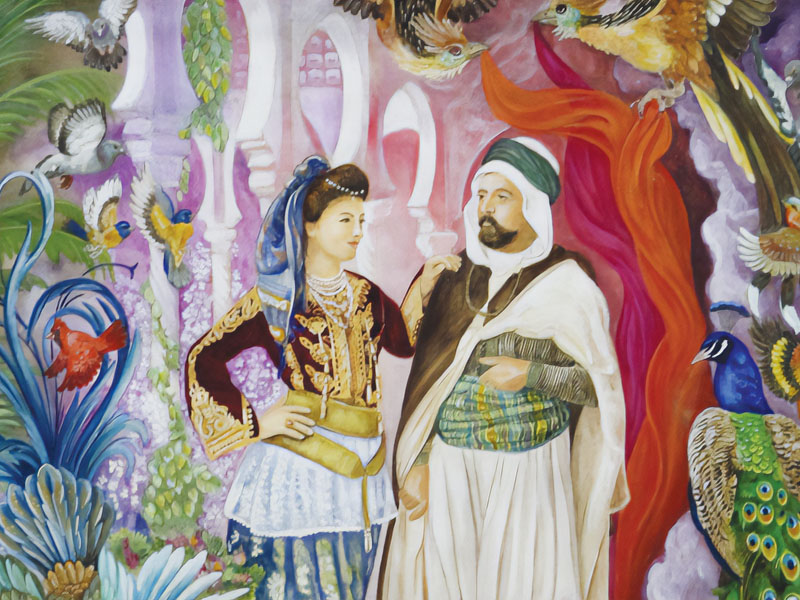Algerian Folk Poetry: A Study of the Concept and Its Evolution, and Renowned Poets
Issue 43

By Dr. Jalul Dawaji Abdul Qadir
Folk literature is very important to studies of national identity and cultural, social and intellectual values. Folk literature is one of the most important pillars of national culture, and studies of folk literature are an important source of information about the cultural identity of any nation; a nation with no heritage has no present or future.
In the midst of intellectual, political, cultural, ideological and technological upheaval, there is an urgent need to authenticate folk literature.
Like the literature of other nations, Algerian literature is characterised by diversity and multiplicity in its forms of expression (it can include Classical Arabic, foreign languages, local dialects, puzzles, proverbs and poetry). This poetry reflects the spontaneous nature of the Algerians and their society. It is not surprising that colloquial language includes literature that reflects the needs and feelings of the disadvantaged classes, but it is surprising that this literature is rarely studied or recognised by scientific institutes. Some academics turn a blind eye to it and underestimate its value; they believe such literature diminishes the importance of Arabs and encourages the revival of minority dialects, but this is incorrect.
The authentic traditional writer is the impetus for different groups of people who manage to transform their suffering into victory, fighting with their swords and achieving victory with their honesty by describing defeat as pain and sorrow.
The focus of this paper is Algerian folk literature and its significance, value, aesthetics, and literary aspects. It also sheds light on Algerian folk poets, on some of their poems, and on Algerian folk literature – especially the poetic text – which merits further study and analysis.


































































